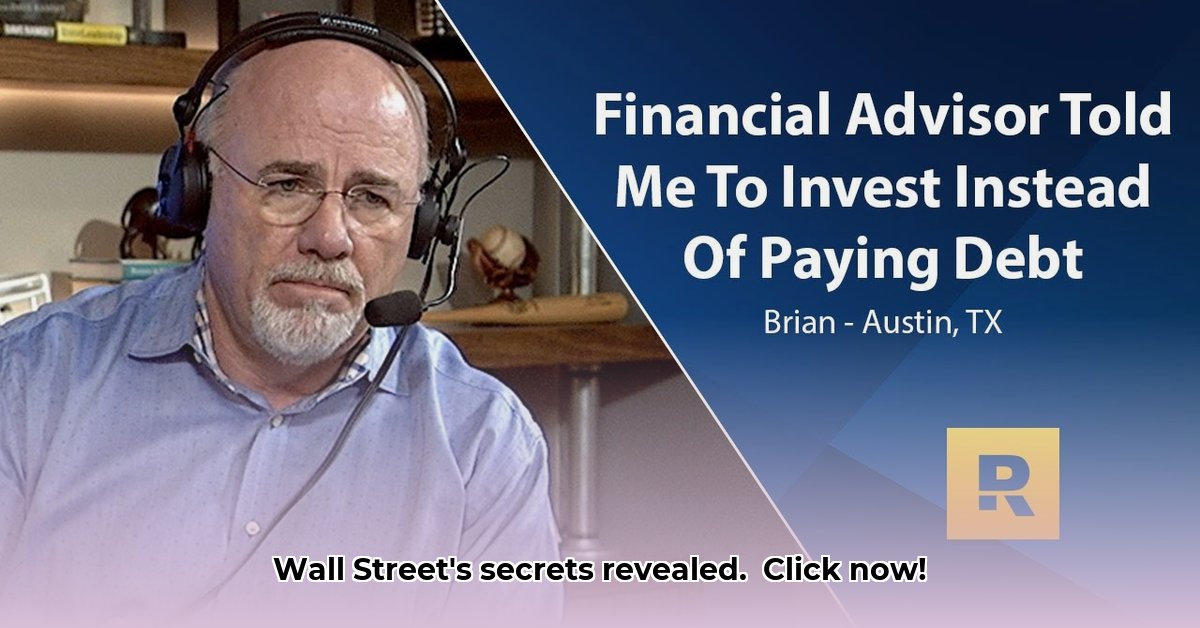
Finance shows: captivating narratives, high-stakes drama, and a glimpse into the often-mysterious world of Wall Street. But how much of what we see on screen reflects reality? This article dissects popular finance shows, separating fact from fiction to help you navigate this increasingly blurred line between entertainment and education. We'll explore how these shows portray major financial events, the ethical dilemmas faced by industry players, and the human cost of financial decisions – all while considering their dramatic license. For deeper dives into Fintech, check out this great resource.
Decoding Wall Street's Portrayals: A Categorized Guide
The following list categorizes popular finance shows based on their thematic focus, analyzing their strengths and weaknesses in terms of factual accuracy and narrative impact. Remember, these shows are primarily entertainment; however, their narratives can inspire critical conversations about finance's complexities, triumphs, and failures.
The 2008 Crisis and its Lingering Shadow
- The Big Short (2015): This critically acclaimed film offers a darkly comedic yet insightful look at the 2008 financial crisis. While simplified for dramatic effect, it effectively highlights the reckless risk-taking and systemic failures that led to the collapse. It’s a valuable starting point for understanding the crisis's broader context, although not a precise historical account.
- Margin Call (2011): Focusing on a single investment bank's internal struggles during the crisis, Margin Call provides a more intimate and arguably more realistic depiction of the rapid decisions and cascading consequences. It emphasizes the human element amidst the financial turmoil.
Key Takeaway: Both films, though fictionalized, offer valuable insights into the interconnectedness of global markets and the importance of responsible risk management, highlighting the fragility of even seemingly stable financial systems.
High-Frequency Trading: Algorithms and the Pursuit of Speed
- Billions (2016-present): This show delves into the high-stakes world of high-frequency trading (HFT) (a form of algorithmic trading characterized by extremely rapid execution speeds) and its ethical ambiguities. While dramatically heightened, Billions raises crucial questions about market manipulation, regulatory challenges, and the role of technology in modern finance.
Key Takeaway: Billions, though fictional, forces a crucial conversation about technological disruption in finance and the need for adaptive regulations. It showcases the potential for both immense profits and significant risks within this challenging domain.
Ethical Dilemmas and Corporate Responsibility: The Price of Greed
- The Wolf of Wall Street (2013): A cautionary tale of unchecked ambition and outright fraud, The Wolf of Wall Street is far from a guide to financial success. The film's depiction – while amplified for entertainment – serves as a stark warning about the corrupting influence of greed and the devastating consequences of illegal activities.
- Boiler Room (2000): This film provides a gritty look into the predatory practices of unscrupulous stockbrokers, highlighting the ethical minefields within the industry. While exaggerating certain realities, it underscores the importance of investor protection and the human cost of financial manipulation.
Key Takeaway: These films, while dramatized, serve as powerful reminders of the importance of ethical conduct and corporate responsibility within the financial world.
The Human Cost: Beyond the Numbers
Many finance shows focus on the mechanics of financial systems. However, certain narratives effectively portray the human impact of financial decisions. These stories showcase the devastating effects of financial crises on individuals and communities, offering a powerful counterpoint to the often-glamorized portrayals of Wall Street. These human-centric narratives add emotional weight and a crucial element often absent in purely technical analyses.
Key Takeaway: The human cost provides a critical perspective, reminding viewers that the numerical fluctuations in financial markets directly impact real lives and communities.
Separating Spectacle from Substance: A Critical Viewer's Guide
While finance shows can be engaging and even informative, they are not substitutes for expert financial advice. It's crucial to approach these narratives critically, understanding the inherent tension between dramatic license and factual accuracy.
Three Key Strategies for Discerning Viewers:
- Cross-reference information: Don't rely solely on the show's narrative; research the events and concepts depicted using multiple reliable sources.
- Identify expert consultation: Look for evidence of consultation with financial professionals or reliance on documented events. This provides a measure of credibility.
- Focus on underlying principles: Even dramatized accounts can highlight important principles of financial risk, market forces, and ethical decision-making.
Finance shows offer a fascinating blend of entertainment and education. By employing a critical lens and supplementing viewing with diverse information sources, you can gain a more nuanced understanding of the complex world of finance, its allure, and its potential pitfalls.